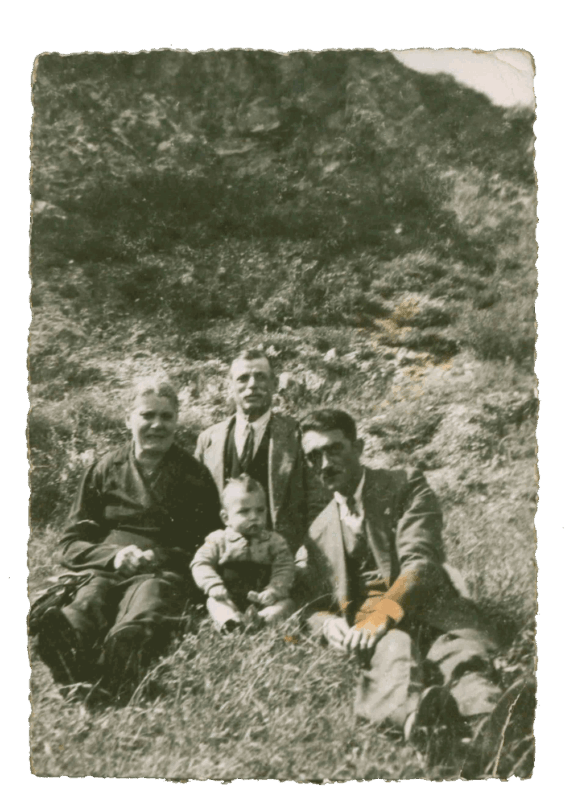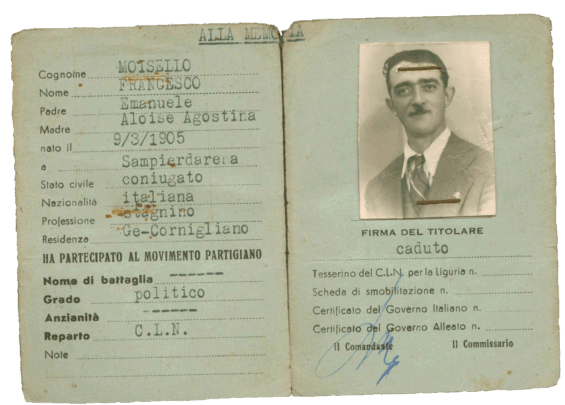Francesco Moisello
March 9, 1905 – November 27, 1944
![]()
Francesco Moisello, 1938 (private collection)
Death by Forced Labor
Francesco Moisello grew up in Sampierdarena near Genoa. He completed his military service at 24 and then began working as a plumber for various businesses in Liguria. In 1940, he married Antonietta Antolini and moved with her to the district of Cornigliano in Genoa. Their son Sergio was born that same year. After Italy was invaded, Francesco Moisello joined the resistance against both the German occupation and the Italian Social Republic. He obtained money and food for families of political prisoners, people who had been deported, and partisans who had gone underground.

Francesco Moisello (right) with his son and his parents, 1941 (private collection)
In July 1944, Francesco Moisello was arrested by Italian police in front of the company where he worked. He was accused of “providing support to insurgents.” He was first brought to the German transit camp in Bozen. In September 1944, he was sent to the Flossenbürg concentration camp. After three weeks in the quarantine camp, the SS transferred him along with about 600 prisoners to the Hersbruck subcamp. Living conditions at the subcamp were catastrophic, and the prisoners worked as forced laborers under brutal conditions, building an underground production facility for aircraft engines. Many of the prisoners at Hersbruck survived only a matter of weeks. Francesco Moisello died in late November 1944. To conceal the cause of death, the German occupation authorities in Italy told his family that he had died during an air raid. At the time of his death, the Hersbruck camp had not yet been equipped with incineration ovens. Instead the SS ordered that Francesco Moisello be cremated in the municipal facility at the Westfriedhof cemetery in Nuremberg. Later, the urn with his ashes was moved from the communal vault at Westfriedhof to Nuremberg’s Südfriedhof cemetery. In 1960, his urn was finally moved to the Cemetery of Honor at the Flossenbürg Concentration Camp Memorial. For many decades, his family did not know the location of his remains. Finally, after much research, Francesco Moisello’s grandsons discovered that their grandfather’s ashes were buried at Flossenbürg.
![]()
Membership ID of the CLN Regional Command of Liguria issued after Francesco Moisello’s death, undated (private collection)
After the German invasion, several political parties formed the “Comitato della Liberazione Nazionale” (CLN, National Liberation Committee) to coordinate the resistance against the occupation and the Italian fascists. Similar entities were also formed at the regional level. For some time after liberation, they remained in operation as political committees. They also issued membership IDs to former partisans. Francesco Moisello was posthumously issued an ID card with the added comment “Alla Memoria” (“In Memory”). The space for the member’s signature contains the comment “caduto” (“fallen”).

